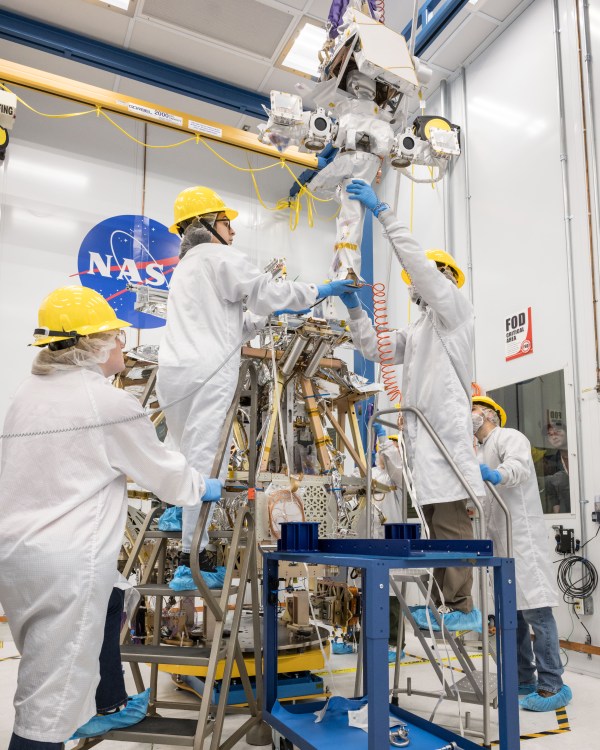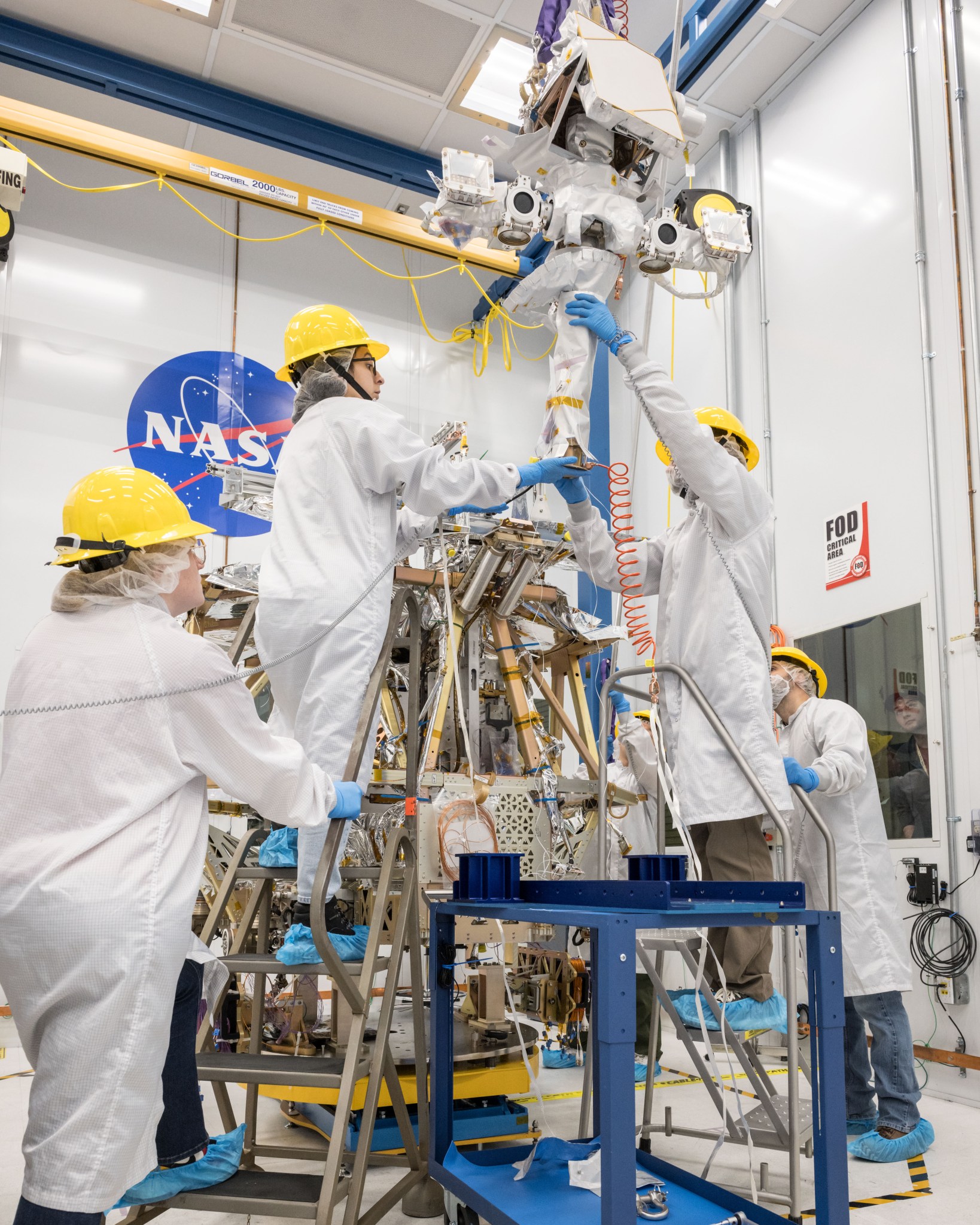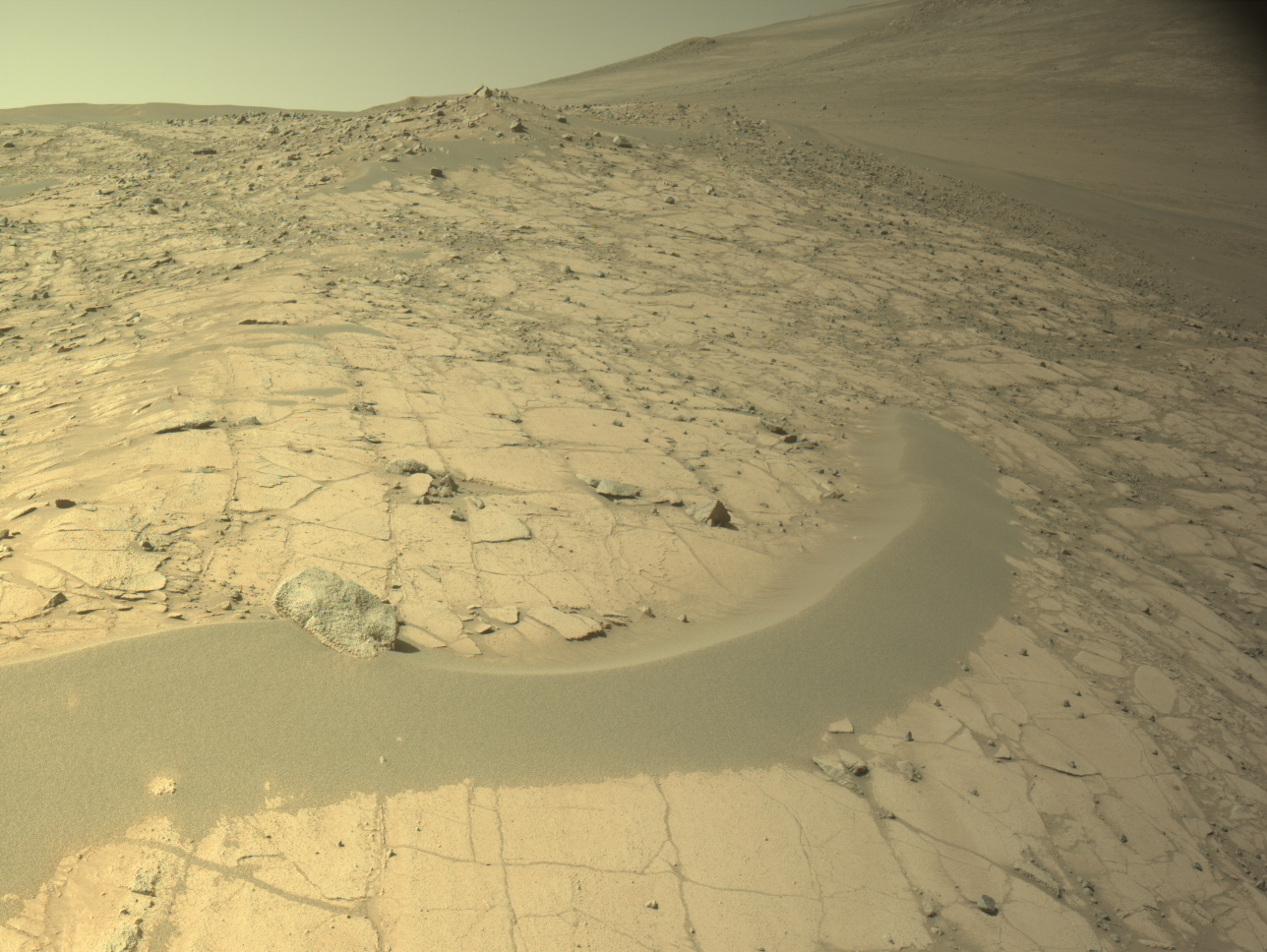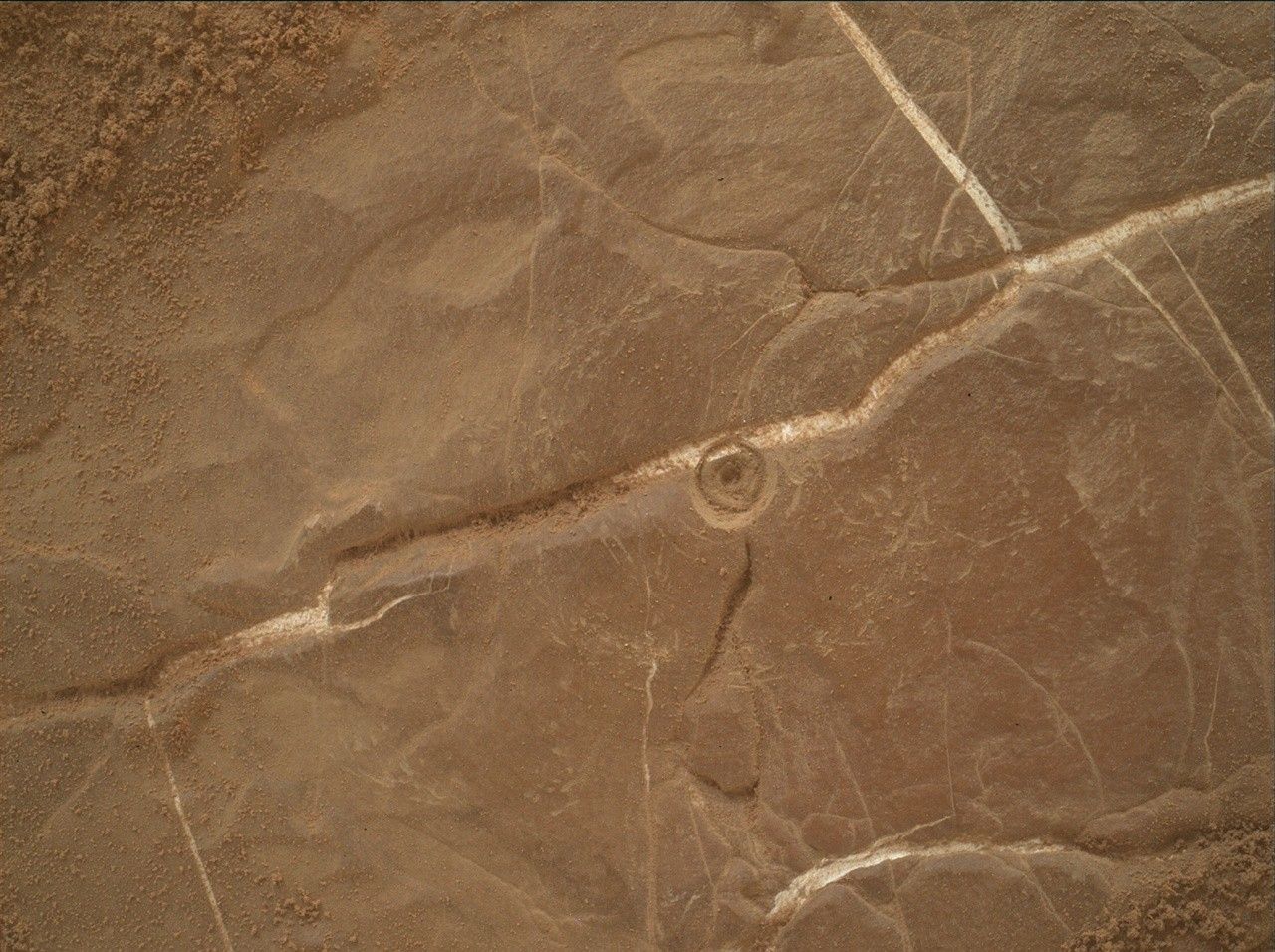NASA’s VIPER Gets Its Head and Neck
In this image from Feb. 12, 2024, engineers lift a mast into place on NASA’s VIPER (Volatiles Investigating Polar Exploration Rover) robotic Moon rover. VIPER’s mast and the suite of instruments affixed to it look a lot like the rover’s “neck” and “head.” The mast instruments are designed to help the team of rover drivers […]


In this image from Feb. 12, 2024, engineers lift a mast into place on NASA’s VIPER (Volatiles Investigating Polar Exploration Rover) robotic Moon rover. VIPER’s mast and the suite of instruments affixed to it look a lot like the rover’s “neck” and “head.” The mast instruments are designed to help the team of rover drivers and real-time scientists send commands and receive data while the rover navigates around hazardous crater slopes, boulders, and places that risk communications blackouts. The team will use these instruments, along with four science payloads, to scout the lunar South Pole. During its approximately 100-day mission, VIPER seeks to better understand the origin of water and other resources on the Moon, as well as the extreme environment where NASA plans to send astronauts as part of the Artemis campaign.
Learn more about VIPER’s mast and mission.
Image Credit: NASA/Helen Arase Vargas
What's Your Reaction?









































